-
 Bitcoin
Bitcoin $88,629.0112
1.53% -
 Ethereum
Ethereum $1,633.3416
0.24% -
 Tether USDt
Tether USDt $1.0000
0.01% -
 XRP
XRP $2.0979
-1.08% -
 BNB
BNB $605.5535
0.62% -
 Solana
Solana $140.2764
0.66% -
 USDC
USDC $1.0000
0.01% -
 Dogecoin
Dogecoin $0.1643
1.41% -
 TRON
TRON $0.2438
0.47% -
 Cardano
Cardano $0.6391
-0.43% -
 Chainlink
Chainlink $13.4401
-0.21% -
 Avalanche
Avalanche $20.3874
-0.96% -
 UNUS SED LEO
UNUS SED LEO $8.8373
-2.11% -
 Stellar
Stellar $0.2496
-3.26% -
 Sui
Sui $2.3313
3.08% -
 Shiba Inu
Shiba Inu $0.0...01260
-0.18% -
 Hedera
Hedera $0.1732
1.55% -
 Toncoin
Toncoin $2.9117
-3.34% -
 Bitcoin Cash
Bitcoin Cash $346.5808
1.81% -
 Hyperliquid
Hyperliquid $18.4964
3.15% -
 Litecoin
Litecoin $79.8162
-0.77% -
 Polkadot
Polkadot $3.7801
-3.27% -
 Dai
Dai $1.0000
0.00% -
 Bitget Token
Bitget Token $4.4558
-0.32% -
 Ethena USDe
Ethena USDe $0.9992
0.01% -
 Pi
Pi $0.6369
0.62% -
 Monero
Monero $217.7312
1.28% -
 Pepe
Pepe $0.0...08147
2.99% -
 Uniswap
Uniswap $5.4346
0.09% -
 Aptos
Aptos $4.9660
-4.00%
Detailed buying, selling and trading tutorial of SUSHI coin (with pictures and text)
To purchase SUSHI coin, choose a reputable exchange, create an account, deposit funds, find the SUSHI trading pair, place a buy order, confirm details, and execute the trade to acquire the desired amount of SUSHI.
Oct 01, 2024 at 09:30 am
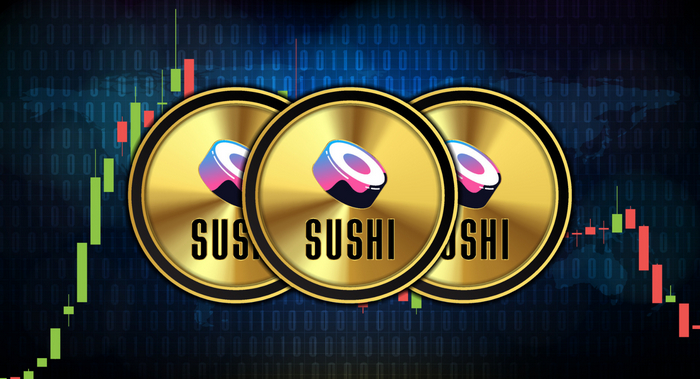
Detailed SUSHI Coin Buying, Selling, and Trading Tutorial with Visual Guide
1. Choose a Reputable Exchange
Several reputable exchanges support SUSHI coin trading, including:
- Binance
- Coinbase
- KuCoin
- Uniswap
- SushiSwap
2. Create an Account on the Exchange
Sign up for an account on the exchange you choose, providing personal information and completing verification steps.
3. Fund Your Account
Deposit funds into your account using supported payment methods (e.g., credit/debit card, bank transfer).
4. Find the SUSHI Trading Pair
Search for the SUSHI trading pair on the exchange's trading interface. For example, "SUSHI/USDT" represents the pair of SUSHI and the stablecoin Tether.
5. Place a Buy Order
To buy SUSHI, enter the desired amount of SUSHI or USD value and the type of order you want to place (e.g., market order, limit order). A market order executes immediately, while a limit order specifies a price limit.
6. Execute the Trade
Confirm your order details and click the "Buy" button. The exchange will match your order with a corresponding sell order, executing the trade.
7. Monitor Your Position
Once you have bought SUSHI, you can track its performance and make adjustments to your position.
8. Selling SUSHI
To sell SUSHI, follow similar steps as buying:
- Find the SUSHI trading pair
- Place a sell order (e.g., limit order or market order)
- Confirm the order details and click "Sell"
9. Trading SUSHI
Exchanges also allow you to trade SUSHI with other cryptocurrencies (e.g., ETH, BTC).
- Find the appropriate trading pair (e.g., "SUSHI/ETH")
- Enter the desired amount or value
- Select a suitable order type (limit order, market order, etc.)
- Execute the trade
10. Withdrawal Funds
Once you have sold or traded your SUSHI, you can withdraw the funds to your personal wallet or bank account.
Additional Tips:
- Research exchanges to find one with low trading fees and a strong security record.
- Store your SUSHI in a secure wallet that supports it.
- Keep your private keys confidential.
- Monitor market conditions and news to make informed trading decisions.
Disclaimer:info@kdj.com
The information provided is not trading advice. kdj.com does not assume any responsibility for any investments made based on the information provided in this article. Cryptocurrencies are highly volatile and it is highly recommended that you invest with caution after thorough research!
If you believe that the content used on this website infringes your copyright, please contact us immediately (info@kdj.com) and we will delete it promptly.
- From a Coin That Wasn't Supposed to Exist to Another That Got Melted Down
- 2025-04-22 21:00:12
- 3 Cryptos to Buy Now Before Parabolic Gains Hit
- 2025-04-22 21:00:12
- Coinbase Derivatives launches XRP-Future contracts, approved by the American Commodity Futures Trading Commission (CFTC)
- 2025-04-22 20:55:13
- Amp (AMP) price prediction: Can this token continue its bullish run?
- 2025-04-22 20:55:13
- Trump Establishes a Limited Bitcoin Strategic Reserve via Executive Order
- 2025-04-22 20:50:12
- Meme Coin Did Not Ruin This Cycle, But Instead Accelerated the Maturity of the Industry as a Market Catalyst
- 2025-04-22 20:50:12
Related knowledge
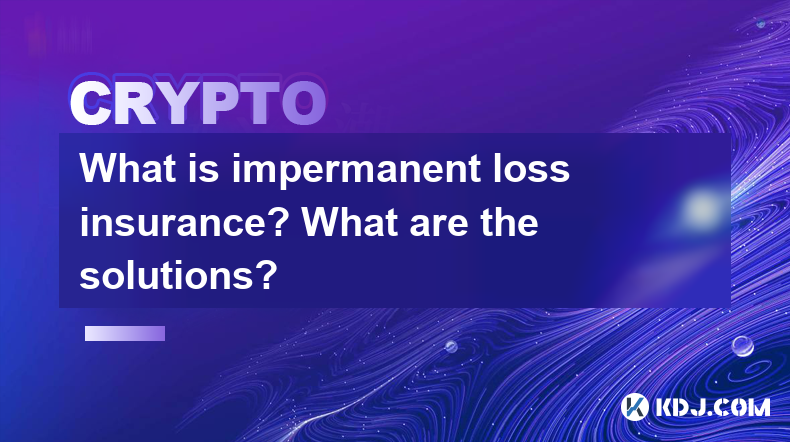
What is impermanent loss insurance? What are the solutions?
Apr 12,2025 at 01:14am
What is Impermanent Loss Insurance? What are the Solutions? Impermanent loss is a significant concern for liquidity providers in decentralized finance (DeFi) platforms. It occurs when the price of tokens in a liquidity pool changes compared to when they were deposited, leading to a potential loss if the provider decides to withdraw their liquidity. To m...
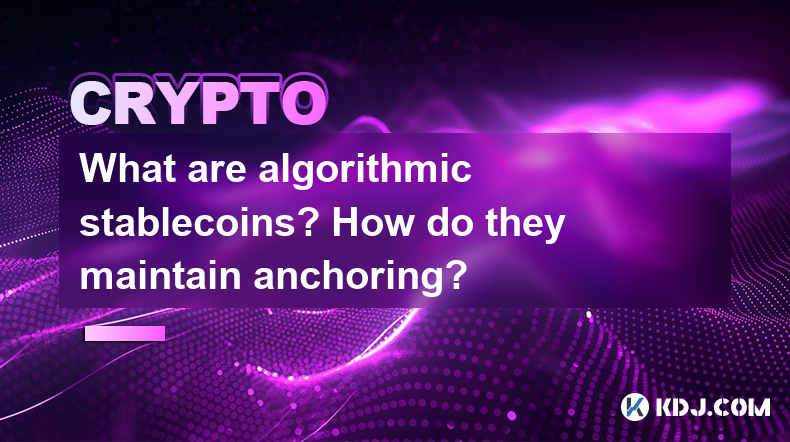
What are algorithmic stablecoins? How do they maintain anchoring?
Apr 12,2025 at 11:35am
Algorithmic stablecoins represent a fascinating and innovative segment within the cryptocurrency ecosystem. These digital assets are designed to maintain a stable value, typically pegged to a fiat currency like the US dollar, through the use of algorithms rather than traditional collateral. This approach distinguishes them from other types of stablecoin...
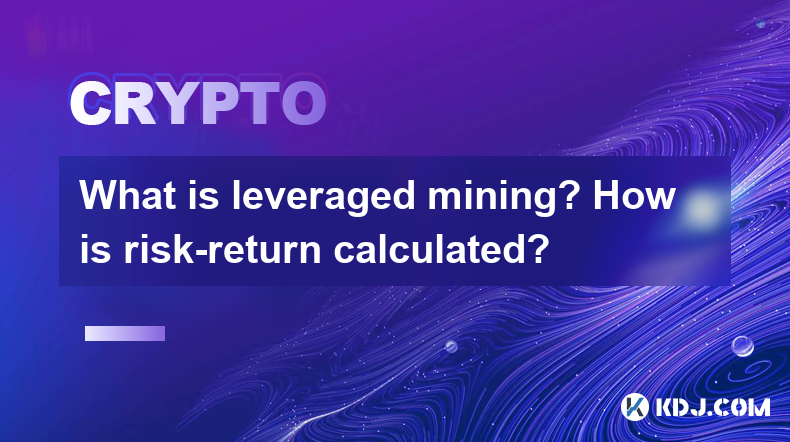
What is leveraged mining? How is risk-return calculated?
Apr 11,2025 at 04:07pm
What is Leveraged Mining? How is Risk-Return Calculated? Leveraged mining is a strategy used in the cryptocurrency space where miners borrow funds to increase their mining capacity and potential returns. This approach can amplify both profits and losses, making it a high-risk, high-reward endeavor. Understanding how to calculate the risk and return asso...
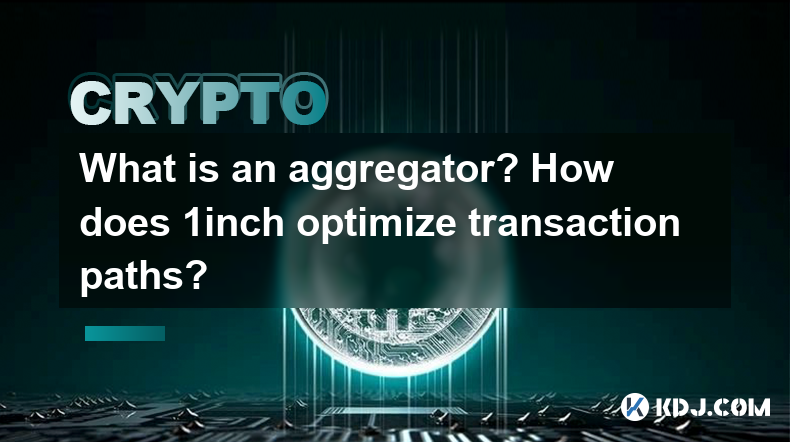
What is an aggregator? How does 1inch optimize transaction paths?
Apr 12,2025 at 05:00pm
An aggregator in the cryptocurrency space is a tool that compiles and compares data from multiple decentralized exchanges (DEXs) to find the best possible trading routes and prices for users. Aggregators are essential for traders looking to optimize their transactions, as they can automatically search through various liquidity sources to ensure the most...
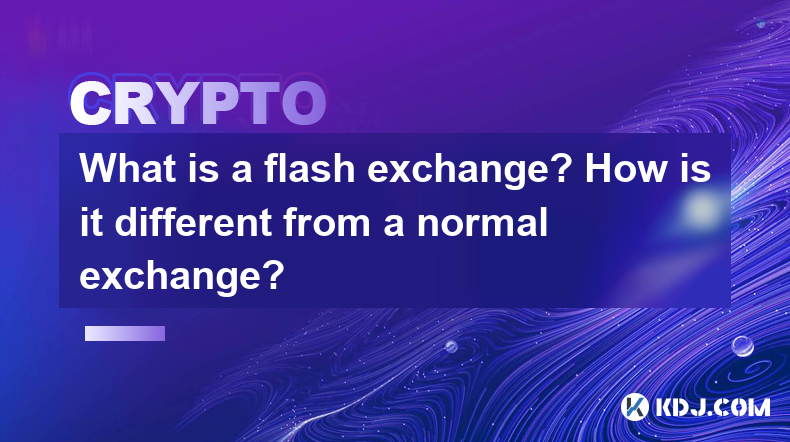
What is a flash exchange? How is it different from a normal exchange?
Apr 16,2025 at 03:43pm
A flash exchange, also known as a flash swap, is a relatively new concept within the cryptocurrency space that has gained significant attention due to its innovative approach to trading. Unlike traditional exchanges, flash exchanges leverage the power of decentralized finance (DeFi) protocols to enable instant, collateral-free trades. In this article, w...
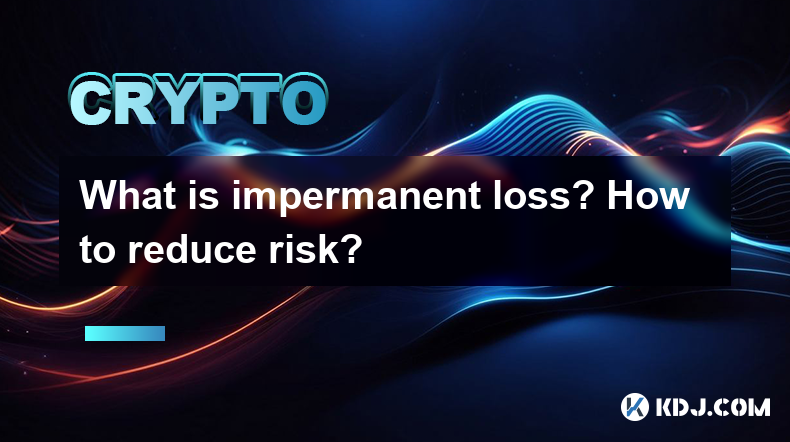
What is impermanent loss? How to reduce risk?
Apr 16,2025 at 11:14pm
What is Impermanent Loss? How to Reduce Risk? Impermanent loss is a term that frequently surfaces in the world of decentralized finance (DeFi), particularly when discussing liquidity provision on automated market makers (AMMs) like Uniswap or SushiSwap. Understanding this concept is crucial for anyone looking to engage in liquidity provision, as it dire...

What is impermanent loss insurance? What are the solutions?
Apr 12,2025 at 01:14am
What is Impermanent Loss Insurance? What are the Solutions? Impermanent loss is a significant concern for liquidity providers in decentralized finance (DeFi) platforms. It occurs when the price of tokens in a liquidity pool changes compared to when they were deposited, leading to a potential loss if the provider decides to withdraw their liquidity. To m...

What are algorithmic stablecoins? How do they maintain anchoring?
Apr 12,2025 at 11:35am
Algorithmic stablecoins represent a fascinating and innovative segment within the cryptocurrency ecosystem. These digital assets are designed to maintain a stable value, typically pegged to a fiat currency like the US dollar, through the use of algorithms rather than traditional collateral. This approach distinguishes them from other types of stablecoin...

What is leveraged mining? How is risk-return calculated?
Apr 11,2025 at 04:07pm
What is Leveraged Mining? How is Risk-Return Calculated? Leveraged mining is a strategy used in the cryptocurrency space where miners borrow funds to increase their mining capacity and potential returns. This approach can amplify both profits and losses, making it a high-risk, high-reward endeavor. Understanding how to calculate the risk and return asso...

What is an aggregator? How does 1inch optimize transaction paths?
Apr 12,2025 at 05:00pm
An aggregator in the cryptocurrency space is a tool that compiles and compares data from multiple decentralized exchanges (DEXs) to find the best possible trading routes and prices for users. Aggregators are essential for traders looking to optimize their transactions, as they can automatically search through various liquidity sources to ensure the most...

What is a flash exchange? How is it different from a normal exchange?
Apr 16,2025 at 03:43pm
A flash exchange, also known as a flash swap, is a relatively new concept within the cryptocurrency space that has gained significant attention due to its innovative approach to trading. Unlike traditional exchanges, flash exchanges leverage the power of decentralized finance (DeFi) protocols to enable instant, collateral-free trades. In this article, w...

What is impermanent loss? How to reduce risk?
Apr 16,2025 at 11:14pm
What is Impermanent Loss? How to Reduce Risk? Impermanent loss is a term that frequently surfaces in the world of decentralized finance (DeFi), particularly when discussing liquidity provision on automated market makers (AMMs) like Uniswap or SushiSwap. Understanding this concept is crucial for anyone looking to engage in liquidity provision, as it dire...
See all articles























































































